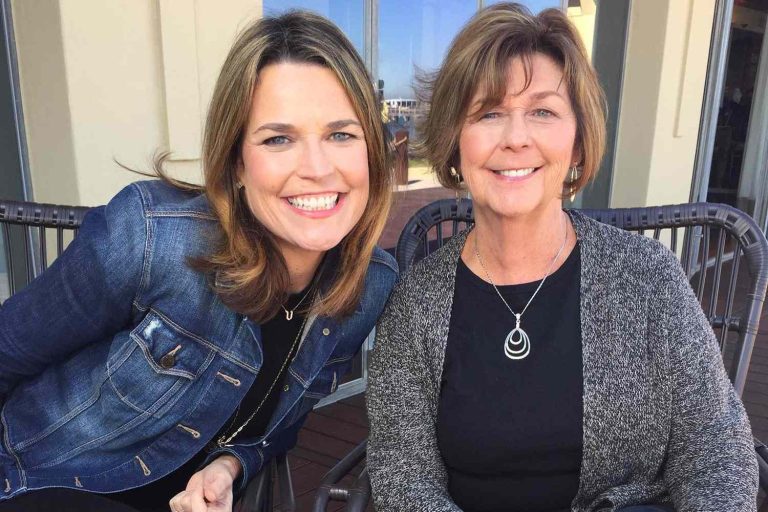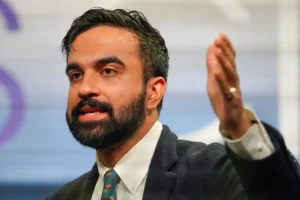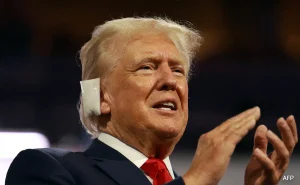President Donald Trump has introduced a bold new financial initiative aimed at giving American families a powerful economic head start. His proposal, dubbed the “Trump accounts,” would provide a $1,000 government-funded investment for every U.S. citizen born between January 1, 2025, and December 31, 2028. The announcement marks a cornerstone of Trump’s expansive “big, beautiful bill” and has already ignited vigorous debate across the political spectrum.
Speaking at the White House on June 9, Trump explained that the funds would be deposited into tax-deferred investment accounts tracking overall stock market performance. These accounts would remain under the guardianship of the child’s family until they reach adulthood, ensuring parents control the investment while allowing the initial contribution to potentially grow over time.
Under the plan, parents and guardians could contribute up to $5,000 annually on top of the government’s seed money, offering substantial opportunities for wealth accumulation. Assuming a conservative 7% annual return—the historical average for the stock market—a $1,000 investment could grow to nearly $4,000 over 20 years without additional deposits. With consistent contributions, accounts could balloon to hundreds of thousands, helping set up future generations with meaningful financial resources.
House Speaker Mike Johnson praised the initiative as “a bold, transformative policy” that aligns with conservative values emphasizing family support, economic opportunity, and prosperity. “Republicans are proud to support life and families,” Johnson said, underscoring the bill’s positioning as a pro-family agenda.
However, the “big, beautiful bill” includes other controversial provisions alongside the Trump accounts. These include sweeping tax reforms such as eliminating taxes on tips and overtime, new tax deductions for American-made auto loans, and increased child tax credits. But critics highlight cuts to social programs like Medicaid and SNAP, which could result in millions losing healthcare coverage. Supporters argue the savings will fund these new programs and tax relief.
The program has also sparked tension with Elon Musk, former head of the Department of Government Efficiency, who argues that the bill undermines efforts to reduce government spending and improve efficiency.
While the House passed the legislation narrowly, it faces significant hurdles in the Senate, where moderate Republicans and Democrats express reservations over cost and social impacts. If enacted, the Trump accounts would represent a historic government investment in newborns’ futures—potentially reshaping how financial security and wealth building are supported at a national scale.
The initiative reflects a long-term vision to empower families, promote investment participation, and stimulate economic growth. Yet, the proposal also raises questions about government roles, fiscal responsibility, and the risks tied to market-based benefits.
As Congress debates, millions of American families born between 2025 and 2028 will be watching closely to see if this ambitious financial plan becomes reality.

Sarah Mitchell is a bestselling novelist recognized for her insightful and emotionally resonant stories that explore the complexities of human relationships. Originally from Denver, Colorado, Sarah grew up in a family of teachers who nurtured her curiosity and love for storytelling. She studied psychology at Stanford University, where she became fascinated by the intricacies of human behavior—an interest that would later shape her writing career. Sarah’s novels are praised for their nuanced characters, intricate plots, and ability to capture the subtle tensions that define love, friendship, and family ties. Her breakthrough novel, The Spaces Between Us, became an instant bestseller, lauded for its honest portrayal of strained family relationships and the fragile bonds that hold people together. Since then, she has published several works that continue to captivate audiences around the world. Outside of her writing career, Sarah is passionate about mental health advocacy and often partners with organizations to promote awareness and support for those struggling with emotional well-being. Her personal life is quieter—she enjoys hiking in the Colorado mountains, practicing yoga, and spending time with close friends. With each new book, Sarah Mitchell cements her reputation as a writer who illuminates the beauty and struggles of human connection.









